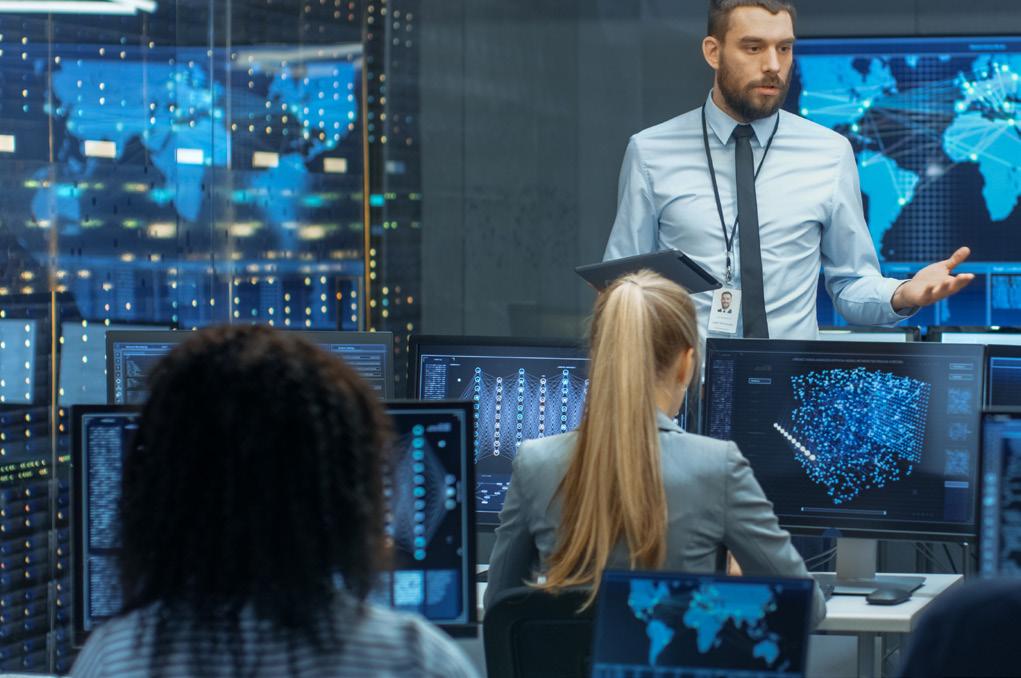
3 minute read
THE CORONA PRESENTS THE IMPORTANCE OF SELF-SUFFICIENCY
text: PETTERI JÄRVINEN Veteran computer geek, IT pro, non-fiction writer, public speaker and owner of Petteri Järvinen Ltd (Oy)
The corona epidemic has made everyone aware of how dependent we are on foreign trade and providers. Chinese factories produce equipment and consumer goods, southern Europe produces fruits and vegetables, and a global logistics chaindelivers these goods to the right place at the right time.
Advertisement

Finland is prepared for military threats and to an extent, cyber threats, but the health threat seems to have surprised the whole world. Are we focused on protecting ourselves from the right threats?
One day, the epidemic will ease and the return to normal will begin. Then Finland’s reserve stock and self-sufficiency in food production will receive the praise they deserve. Due to its location, Finland is more resilient to crises than many Central European countries.
In the aftermath, it is also a good time to think about IT self-sufficiency. In this respect Europe is greatly behind. To put it frankly, you can say that the programs are made in the US and the equipment in China. Europe only has narrow IT expertise, of which the gaming industry and 5G networks are good examples.
Technology has become an instrument of power politics, which is only gaining more importance as China challenges the global leadership of the United States.
Hidden within visible power there lies a perplexing and mysterious power that is invisible to the general public. Softwares can be used to create backdoors or intentional vulnerabilities that help intelligence and the country’s own economy to gain a competitive advantage. Undocumented features, such as backdoors or kill switches, can be embedded at deep inside hardware, which can paralyse the device from all over the world.
Information systems technology is so complex and layered that it is impossible for the buyer to fully unders tand what they have actually acquired. Particularly in software, the constant need for upgrades means that the buyer is in the seller’s grasp throughout the life cycle of the system.
There are already real life examples of this. In the spring of 2019, the United States banned American software companies from cooperating with Chinese Huawei. The closure of the Android operating system and application store was a serious blow to Huawei’s booming phone business.
In the fall of the same year, Adobe, known for its graphics software, was forced by a presidential order to stop using its cloud services in Venezuela. Since the programs don’t work without the cloud, the country’s photographers and all visual production were in short supply, until, Trump eased the ban.
Europe is in a difficult position, set between the United States and China. Up until Trump’s election, we could count on the Western countries to stand together, and the US would not leave us in danger. However, the situation has since changed. The US is becoming more independent and self-serving.
In some areas, it may be too late, but a genuine effort is enough to speed things up and bring about positive development. The key is to start making the ball roll. Movement always creates new movement, the effects will multiply.
The competition for computer operating systems has long been lost. Nothing is a challenge for Windows dominance, but it may not even be necessary. The EU could take one of the many secure open source Linux distributions, audit its code and recommend this version to the public administration. It would be essential to take care of the whole life cycle: updates, drivers, certificates and everything else related to a secure IT environment.
No one can be forced to change operating systems, but the example of a secure Linux could attract application developers and eventually companies.
Similar measures could be applied to smartphones, browsers and certificates. Everyone should be able to provide a secure EU option. Nokia and Ericsson show that there are opportunities in the ever-evolving market. Europe is in a good position in regards to 5G technology and IoT devices, as long as it can be maintained.
The majority of hacking and web fraud is based on deception or manipulation of the user. Technology or self-sufficiency can not be used to protect against these attacks.










